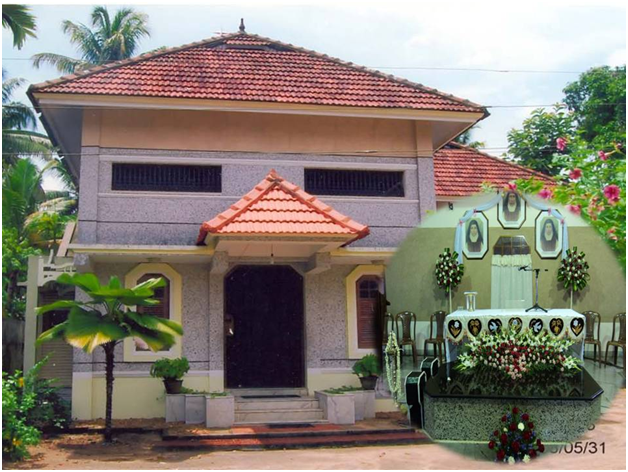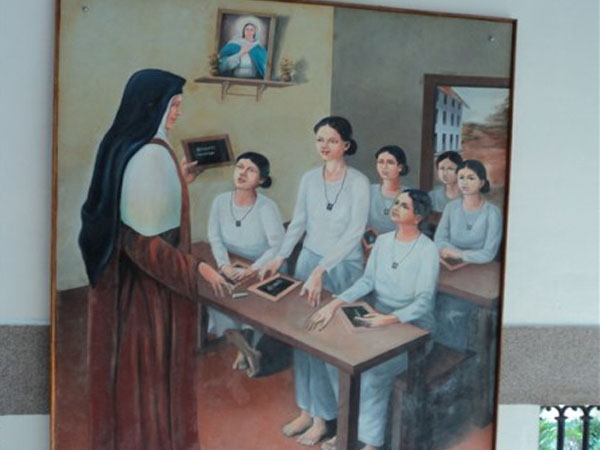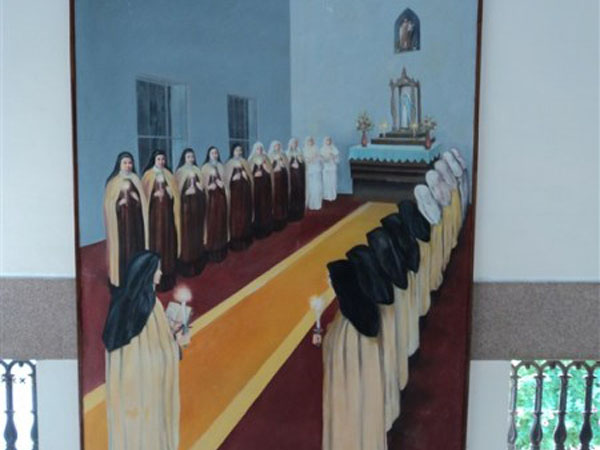Congregation of Teresian Carmelites (CTC)
Blessed Mother Eliswa, the Foundress
(1831-1913)
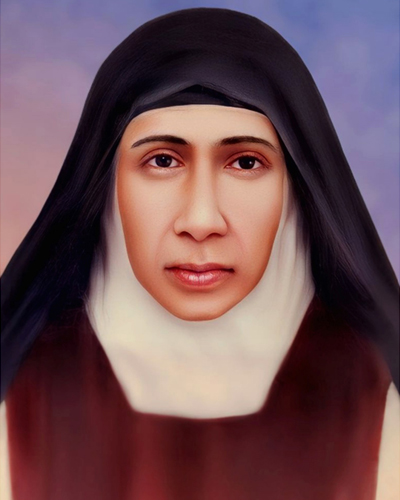
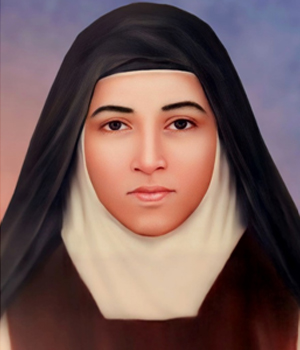
Mother Anna,Co-Foundress
(1850-1872)
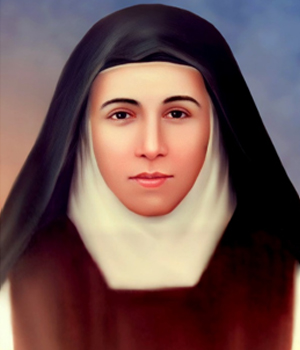
Mother Thresia, Co-Foundress
(1848-1902)
It is surprising to learn that until the second half of the19th century, there were no religious congregations for women and Catholic schools for girls in Kerala. Mother Eliswa was the precursor of women religious in Kerala and the Founderess of the first indigenous Third Order Discalced Carmelite Congregation (TOCD) for women in India which later bifurcated to the Congregation of Teresian Carmelites (CTC) and the Congregation of the Mother of Carmel (CMC).
She established the first convent school, boarding house and orphanage for girls in Kerala and provided a value oriented and integral formation for girls and women. The members of both CMC and CTC, i.e. more than 7000 sisters, could receive the heavenly beams of prayer, sacrifice and service through Venerable Mother Eliswa Vakayil, the foundress. Mother Eliswa, the first religious sister, is the mother of all consecrated women in Kerala. Eliswa was born on 15th October, 1831 to a noble Vyppissery Capithan family in Cruz Milagris Parish at Ochanthuruth, in the Vicariate of Verapoly, Kerala. She was the first of eight children born to Thomman and Thanda. Louis, her third brother, was the first to be ordained a priest for the St Pius X Province of the Discalced Carmelite Order in India. He was also the founder of the first Catholic bi-monthly, ‘Sathyanadha kahalam’. Louis was a scholar, a linguist and one of the translators of the Bible into Malayalam. He has written more than ten books.
In 1847 when Eliswa was 16, she was married to Vatharu Vakayil at Koonammavu and bore a daughter, Anna. When Vatharu fell ill and died, Eliswa refused to remarry and chose a life of prayer, detachment and solitude, received the Sacraments frequently, and spent long years in silent preparation for a life inspired by the Holy Spirit. An Italian Carmelite Missionary, Fr Leopold Beccaro OCD recognized her charism. Eliswa’s daughter, Anna, also decided to live a consecrated Life. Thresia, Mother Eliswa’s youngest sister also met Fr Leopold and expressed her desire to consecrate her life to God.
The then Vicar Apostolic of Verapoly, Archbishop Bernardine Baccinelli, OCD, officially signed the decree of foundation of the Third Order of the Discalced Carmelite Congregation for women (TOCD). On 13th February, 1866, these three Latin-Rite women moved from their home to the newly built bamboo convent on their property. It was the first convent in Kerala and the history of the TOCD is unique in the history of the Catholic Church. Later, members of the Syro-Malabar Rite were also admitted to this Congregation by Mother Eliswa. On 27th March, 1867 the sisters moved from the bamboo convent to St Teresa’s Convent at Koonammavu that had just been built on the property owned by Mother Eliswa and her daughter Anna. On 24th March, 1890, the Sacred Congregation of Propaganda Fide decided to change the jurisdiction over St Teresa’s Convent at Koonammavu from the Archdiocese of Verapoly to the newly established Vicariate of Thrissur for Syro-Malabar rite. On 17th September, 1890 all the Latin sisters, including the Foundress Mother Eliswa, had to leave the convent. They were sheltered in St. Teresa’s Convent (CSST) Ernakulam for few days after which they were brought to Varapuzha by the Archbishop of Verapoly. Today the two branches of this TOCD Congregation form two independent religious congregations: The Congregation of Teresian Carmelites (CTC) and the Congregation of the Mother of Carmel (CMC).
Mother Eliswa received eternal reward on 18th July, 1913 and was buried in the special burial place in front of the St. Joseph’s and Mount Carmel Church at Varapuzha. After few years, the mortal remains were shifted to the tomb built in the convent compound. In 1997 her mortal remains were shifted again to the tomb inside the memorial building called Smruthi Mandhir in the Convent compound at Varapuzha.
Educationist
Though the formal education was denied for girls at that time in Kerala, she taught the girls, language, Mathematics and handicrafts along with moral teachings, prayers, cooking and house management. This value-oriented formation brought an improvement in the status of women and it brought about a spiritual renewal in the families. She respected the poor and marginalized and convinced them of the dignity of human life and freedom of the children of God. Mother Eliswa empowered women training them in rosary making and other handicrafts, which still continues in the areas of Koonammavu and Varapuzha. She imparted integral education focusing on the physical, spiritual, moral, cultural and economic growth of women. She stood against social evils like caste system, untouchability and ignorance.
Relevance Today
Mother Eliswa presents a glorious model of consecrated life to this consumeristic and wounded world, which goes after pomp, luxuries and superficial pleasures. She believed that only the spirit of love, tolerance, mutual understanding and generosity of heart can heal the world. She was an embodiment of all these noble qualities. She is not only the foundress of religious congregation, but also of the first school for girls in Kerala, first boarding house and orphanages attached to the convent for poor and uncared children. She tried to dispel the darkness of illiteracy from the society by educating girls and empowering women.
CTC CHARISM
The CTC charism is, “Contemplative union with God in a life of communion through charity and ecclesial service”. Our motto is “Passion for Christ and compassion for the humanity”. The charism encompasses her God experience, her special inspiration for contemplative prayer and union with God, the way she designed a community, the fraternal love lived by her, the silence she practiced, the humility she imitated from Jesus, detachment and simplicity she practiced, the exemplary virtues and evangelical counsels and the special mission she accomplished in the Church by recognizing the needs of the society.
She had received from her younger days the seed of contemplative prayer as a gift from God. Her personality had, therefore the aptitude necessary for its sprouting and growing. She was spontaneously drawn to the practice of contemplative prayer and Teresian Carmelite contemplative prayer tradition. Later she was guided by Fr. Leopold Beccaro OCD, Discalced Carmelite missionary from Italy. Her life as a consecrated person and foundress of TOCD is characterized by this prayer experience which served as the source of her being and her activities. This was not merely an individualistic experience but a communitarian experience. She founded a community of praying persons.
These fundamental qualities were placed totally at the disposal of the Church by Mother Eliswa. Her ecclesial consciousness is again emerging from the Teresian Carmelite spiritual tradition. Mother Eliswa wanted her congregation to participate in the edification of the Church through the various ministries. Teresian Carmelites integrate themselves into the local Church and cater to its needs wherever they are as desired by Mother Eliswa.
National and International Presence
Mother Eliswa was a trend setter and she responded whole heartedly to the challenges of her liberative mission. Her daughters in the Religious Congregation follow her mission facing the challenges of the times, pioneering new ventures according to the needs of the people. She is the pioneer religious, social reformer, foundress and educationist with a special emphasis on her contribution to Kerala Culture and to the whole nation which is continued today through her thousands of followers who serve in many states of India, Rwanda, Italy, Germany and United States and trying to make their presences in other countries too.
The Congregation of Teresian Carmelites (CTC) is proud to recall that the first convent of ours in Europe was established in Essen on 1st October, 1984. The endless toil, the incessant struggles and daring undertakings for the first developing venture, the mission in Germany, by rendering selfless dedicated service to the people, being united with our Lord in the spirit and charism of our congregation of the first team is commendable. Thus St Joseph Convent in Essen became the Mother house of CTC in Europe from where it expanded to many other locations. At present 35 of our sisters are rendering their service in hospitals and homes for the aged in Germany.
Another memorable and heroic direction was towards Africa and Italy in the year 1978 and 1986. Now There are three communities in Rwanda and six communities in Italy.
In 2014, CTC started in the Diocese of Bismarck in United States and now there are two convents in US.
CTC at Present
Total Number of Convents………………..224
Total Number of Sisters around 1400
Total Number of Provinces………………..11
Thus the love and light of Christ is spread through the sisters of the Congregation of Teresian Carmelites (CTC) by their prayer, presence and service in India, Germany, Italy, Africa and United States, living the spirit and charism inherited from Mother Eliswa, the Foundress of TOCD(CTC). The Congregation of Teresian Carmelites serves the society through its 176 educational institutions, 50 hospitals and dispensaries, 40 boarding houses, 21 homes for girls and 41 centers for the social work.
Smruthi Mandhir, Varapuzha
